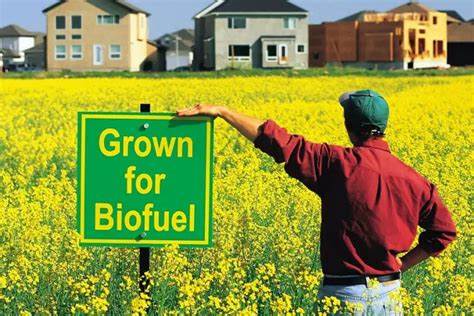
Global Trade in Biofuels: Challenges and Opportunities
Introduction
Global trade in biofuels is the import and export of renewable energy sources derived from organic materials. This article explores the challenges and opportunities associated with this growing sector. The relevance and importance of this topic lie in the potential of biofuels to address energy security concerns and contribute to climate change mitigation.
Historical Background
The early development of biofuels can be traced back to the 19th century when ethanol was first produced from corn. However, it was not until the oil crisis in the 1970s that biofuel production gained significant attention. Since then, the global trade in biofuels has evolved, driven by increasing energy demands and the need for sustainable alternatives to fossil fuels.
Key Concepts and Definitions
Biofuels can be categorized into biodiesel, bioethanol, and biogas, each produced through specific processes. Global trade in biofuels involves the import and export dynamics of these renewable energy sources, which are subject to regulations and policies set by governments and international bodies.
Main Discussion Points
Point: Impact of biofuels on energy security and climate change mitigation
Biofuels play a crucial role in reducing greenhouse gas emissions. Compared to conventional fossil fuels, they emit significantly lower levels of carbon dioxide and other pollutants. Additionally, biofuels contribute to energy diversification, reducing dependence on oil-producing nations and enhancing energy security.
Point: Economic opportunities and challenges in the global biofuels trade
The global biofuels trade presents various economic benefits, including job creation, rural development, and reduced dependence on oil imports. However, challenges such as price volatility and market competition can hinder the growth and profitability of the biofuels industry.
Point: Environmental concerns and sustainability issues
While biofuels offer environmental advantages, concerns exist regarding their potential negative impacts on land use and biodiversity. The production of certain biofuel crops, such as palm oil, can lead to deforestation and habitat destruction. To address these concerns, sustainability certification schemes have been introduced to ensure responsible biofuel production practices.
Case Studies or Examples
Case study: The impact of the European Union’s biofuels policy on global trade
The European Union’s Renewable Energy Directive has had a significant impact on the global biofuels trade. The policy sets targets for the use of renewable energy in transportation, promoting the import of biofuels from countries outside the EU. This has created both opportunities and challenges for biofuel-producing nations.
Case study: Brazil’s success in developing a sustainable biofuel industry
Brazil has emerged as a global leader in bioethanol production and export. The country’s success can be attributed to its favorable climate for sugarcane cultivation and government support for the biofuel industry. Brazil’s bioethanol model serves as an example of how sustainable biofuel production can be achieved.
Current Trends or Developments
Recent advancements in biofuel technologies have led to the development of more efficient and sustainable production processes. These include the use of advanced feedstocks and the integration of bioenergy with other industries. Additionally, shifts in global biofuel consumption patterns are being observed, with countries like China and India increasing their biofuel consumption.
Challenges or Controversies
The food versus fuel debate has raised concerns regarding the use of food crops for biofuel production. Critics argue that diverting crops for biofuel production can lead to increased food prices and food insecurity. Another controversy revolves around the impact of biofuel production on land use and deforestation, as the expansion of biofuel crops can contribute to habitat loss and environmental degradation.
Future Outlook
The future of global trade in biofuels holds great potential for technological advancements and innovation. Research is focused on developing more efficient biofuel production methods, such as using algae or waste biomass as feedstocks. Additionally, projected changes in biofuel trade patterns indicate a shift towards greater regional self-sufficiency and diversified feedstock sources.
Conclusion
Global trade in biofuels presents both challenges and opportunities. The industry has the potential to enhance energy security, mitigate climate change, and stimulate economic growth. However, it also faces environmental concerns and controversies that need to be addressed. Understanding the complexities of global biofuel trade is essential for policymakers and stakeholders to make informed decisions and foster a sustainable future.
References
Smith, K., & Hartley, D. (2019). The biofuels opportunity: Moving towards a sustainable future. Routledge.
International Energy Agency. (2021). Biofuels. Retrieved from https://www.iea.org/topics/bioenergy/biofuels